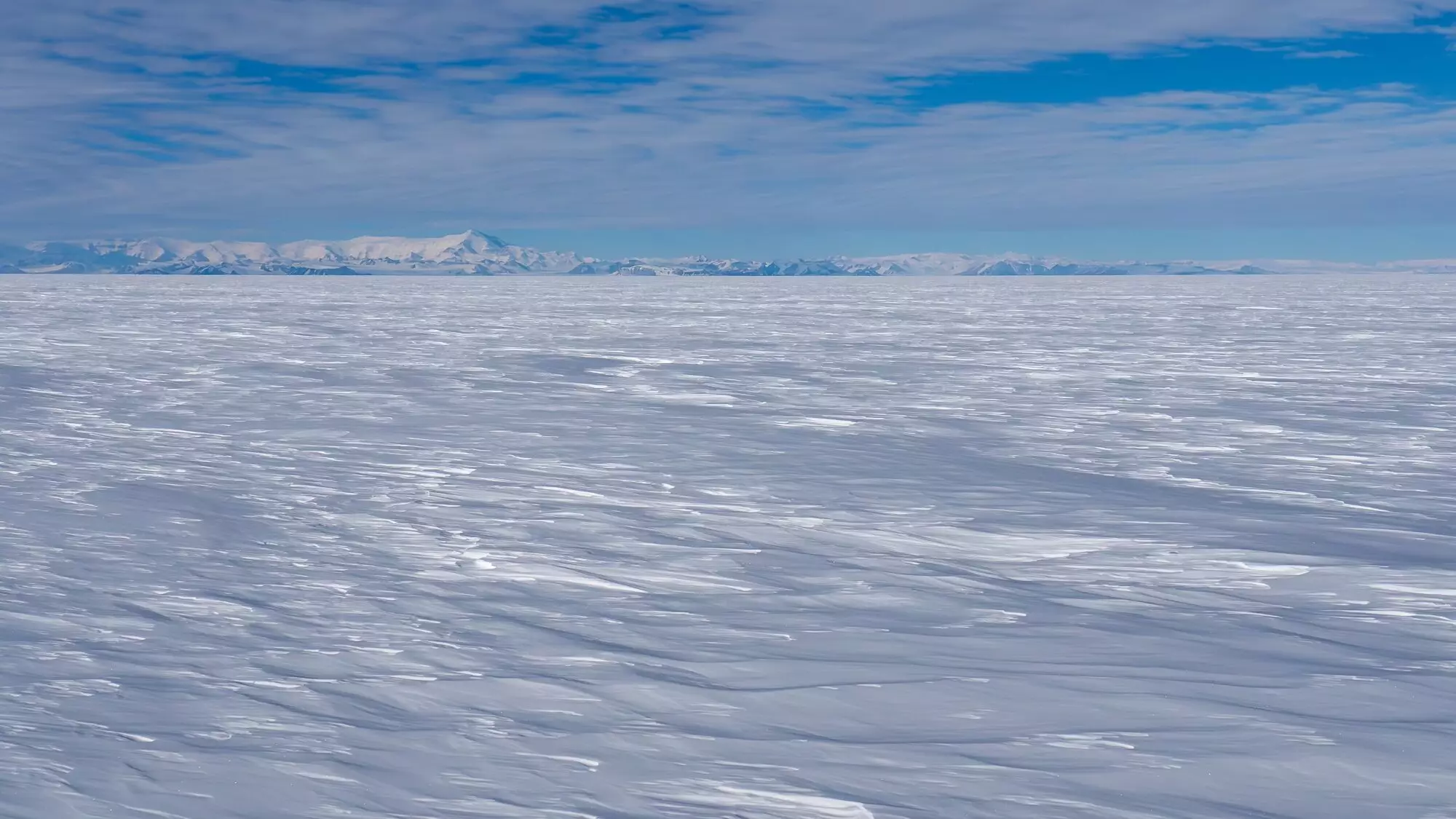

Recent studies have shed light on the potential collapse of the West Antarctic Ice Sheet and its implications for global sea level rise. In particular, research on the Ross Sea region has revealed a significant finding that could have profound consequences for the future of the ice sheet.
The stability of the West Antarctic Ice Sheet in the Siple Coast region has long been a subject of interest for scientists. This area is characterized by the presence of the Ross Ice Shelf, a massive ice mass that plays a crucial role in slowing down the flow of ice and stabilizing the ice sheet glaciers. However, new evidence suggests that this region has not always been as stable as it appears today.
A study conducted by GNS Science Te Pū Ao, Te Herenga Waka—Victoria University of Wellington, and NASA’s Jet Propulsion Laboratory used computer model simulations to investigate the retreat and advance of the West Antarctic Ice Sheet in the Ross Sea region. The research aimed to uncover the underlying processes that drive ice sheet behavior and predict future changes in the ice sheet.
The simulations revealed that changes in ocean temperature and crustal response played a crucial role in the retreat and advance of the ice sheet in the past. Ocean mixing, influenced by factors such as sea ice formation and mantle viscosity, impacted the melting rates of the ice sheet. Additionally, crustal uplift caused by changes in ice load helped stabilize the ice sheet and facilitate its advance.
While the study suggests that it is still possible to prevent the collapse of the ice sheet in the Siple Coast region by reducing greenhouse gas emissions, the threat of global warming looms large. Climate models indicate that under high-emissions scenarios, the West Antarctic Ice Sheet could experience extensive retreat similar to what occurred thousands of years ago. With less sea ice formation and deep ocean mixing, the region could be vulnerable to rapid melting and sea level rise.
The research team incorporated a wide range of processes in their modeling, including changes in sea level near the ice sheet and the ice sheet’s gravitational pull. By testing various hypotheses in a more robust manner, the study provides valuable insights into the complex interactions between the ice sheet, ocean, and solid earth. Future research will need to build upon these findings to better understand the dynamics of the West Antarctic Ice Sheet and its response to climate change.
The new research on the West Antarctic Ice Sheet sheds light on the critical factors that influence its stability and future behavior. By taking into account the complex interactions between the ice sheet, ocean, and Earth’s crust, scientists can better predict how the ice sheet will respond to changing environmental conditions. With the threat of global warming looming large, it is essential to continue studying the West Antarctic Ice Sheet and taking steps to mitigate the potential impacts of its collapse.
Rogue waves have long been a subject of fascination and terror in maritime lore. These…
As the world grapples with public health challenges, especially those posed by infectious diseases, the…
The Sombrero Galaxy, also known as Messier 104, embodies a breathtaking blend of spirals and…
In recent advances in quantum electronics, a groundbreaking discovery leveraging the concept of kink states…
In the intricate tapestry of nature, ice often exists in a delicate balance with liquid…
In an astonishing event that captured global attention, a rogue object from beyond our Solar…
This website uses cookies.